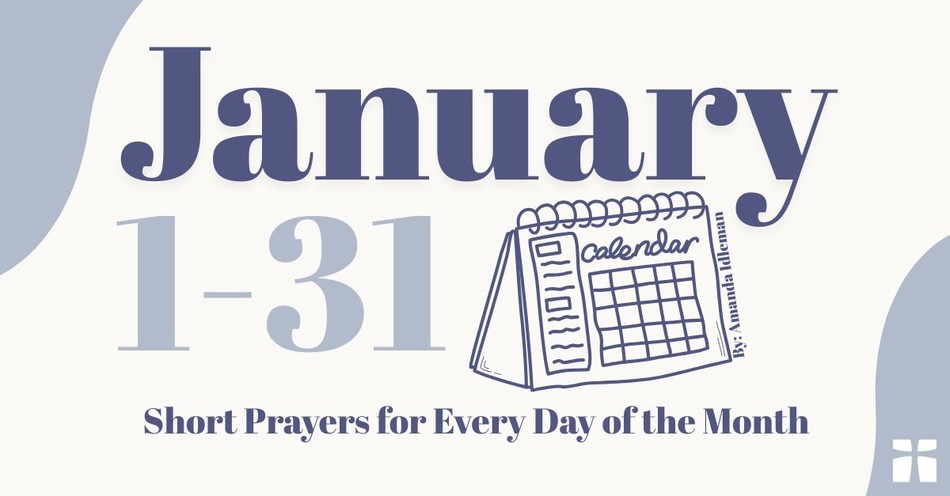Christianity.com: Popular Bible Study Topics
Bible study is at the heart of growing in faith and understanding God's Word. This list showcases some of the most searched-for and widely read Bible-related content currently available on Christianity.com. Grouped by specific subtopics, these articles offer entry points into different areas of biblical learning and reflection.
Table of Content
Angels, Demons & the Supernatural
Bible Characters
Bible Interpretation & Common Questions
Bible Verses by Theme
Biblical Holidays & Events
Books & Chapters of the Bible
Christian Teachings & Theology
End Times & Prophecy
Prayer
Sin, Salvation & Christian Life
Bible Verse of the Day (Updated Daily)
Angels, Demons & the Supernatural
Who Were the Nephilim in the Bible
Are There Different Types of Angels in Bible
Who Are the Seraphim in the Bible
What is a Cherub the Cherubim in the Bible
What Are Archangels in the Bible
What Are All the Names of Angels in the Bible
Who is the Angel of Death in the Bible
What Does the Bible Say About the Angel Gabriel
What Does the Bible Say About Demons
When Did God Create Angels Bible
Who is Abaddon in the Bible
Succubus Bible
Does Bible Talk About Delilah Spirit
Is Angel Named Ariel in Bible
Luke 10:18 Meaning Satan Fall Like Lightning From Heaven
Are Aliens Demons What Does the Bible Say
Does Bible Show Angel Hierarchy
What is a Python Spirit in the Bible
Encounters With Angels in the Bible
Bible Characters
The Spirit of God and the Spirit of Antichrist
Who Was Enoch in the Bible
Who Was Job in the Bible
Who Was Elijah in the Bible
King Solomon in the Bible
Who Was Methuselah in the Bible
Lazarus in the Bible
Who Was Deborah in the Bible
Who Was Moses in the Bible
Who Was Jacob in the Bible Why Did Jacob Wrestle With God
Bible Interpretation & Common Questions
What is the Leviathan According to the Bible
What Does Agape Love Really Mean in the Bible
How Many Books Are in the Bible
What is Palm Sunday Bible Story and Meaning Today
What is the Biblical Significance of the Number 7
What is a Tithe Meaning and Importance of Tithing in the Bible
What is the Firmament Definition and Meaning in the Bible
What Does Selah Mean in the Bible
What is a Concubine Why Did God Allow Men to Take Concubines in the Bible
What is the Meaning of Hosanna in the Bible
What Does Ebenezer Mean in the Bible What's an Ebenezer Stone Used for
What is Iniquity Meaning and Importance in the Bible
What is Tribulation Bible Meaning and Significance
What Does Humility Mean in the Bible Why Should We Be Humble
What Does it Mean Love is Patient
Bible Verses by Theme
Birthday Bible Verses
Bible Verses for Morning
Bible Verses About Protection
Bible Verses About Blessings
Bible Verses About Communion and the Lord's Supper
Bible Verses About God's Love
Bible Verses About Strength
Encouraging Bible Verses
Bible Verses About Unity
Bible Verses About Worship
Biblical Holidays & Events
What is Passover Bible Meaning
The Christmas Bible Story Nativity of Jesus in Scripture
Easter Bible Trivia Questions to Test Your Knowledge
Books & Chapters of the Bible
1 Corinthians
New International Version
Psalms NIV
Book of Matthew
Song of Solomon
Psalm 91
Book of Romans
What is the Meaning of Iron Sharpens Iron in Proverbs 27:17
As a Man Thinketh so is He Proverbs 23:7
1 Corinthians 13:4-8
Ephesians
Be Still and Know That I Am God What is the Meaning of Psalms 46:10
Psalms KJV
Luke
What is the Fall of Man Genesis 3 Explained
Christian Teachings & Theology
What Was the Ark of the Covenant Its Meaning and Significance
What is a Covenant Biblical Meaning and Importance Today
What is the Abrahamic Covenant
What is the Davidic Covenant
What Are the Synoptic Gospels
What is the Mosaic Covenant Bible Meaning Explained
What Day of Atonement Bible
What is the Unholy Trinity in the Bible
End Times & Prophecy
What Does the Bible Say About the End of the World
Is it True That the Word Rapture is Not in the Bible
Who Are the 144 000 in the Bible is This Number Symbolic or Literal
What is the Mark of the Beast in the Bible
What is the Significance of the Fall of Babylon in the Bible
What Does the Bible Really Say About the Rapture
What Does the Bible Say About the Last Days and How to Prepare for Them
Where Bible Mention Second Death
Prayer
Opening Prayers to Start Your Bible Study Worship and Meetings
What is the Prayer of Jabez Bible Meaning and Prayer
Some of the Most Powerful Prayers in the Bible
Sin, Salvation & Christian Life
Top Bible Movies of All Time
Bible Say About Pornography
Does the Bible Say Anything About Kissing Before Marriage
Bible Say About Piercings
Is the Phrase Spare the Rod Spoil the Child in the Bible
Does the Bible Say Anything About Aliens
Bible Study Books
If God Knew That Adam and Eve Would Sin Then Why Did He Create Them
Crossing Over in the Bible Meaning
Stand Still and See the Salvation of the Lord
Bible Verse of the Day (Updated Daily)
This is one of the most frequently visited pages on Christianity.com. While it features fresh content daily, it remains a valuable entry point for readers looking for a quick moment of daily Scripture-based reflection. Below is a small sample of recent entries.

















